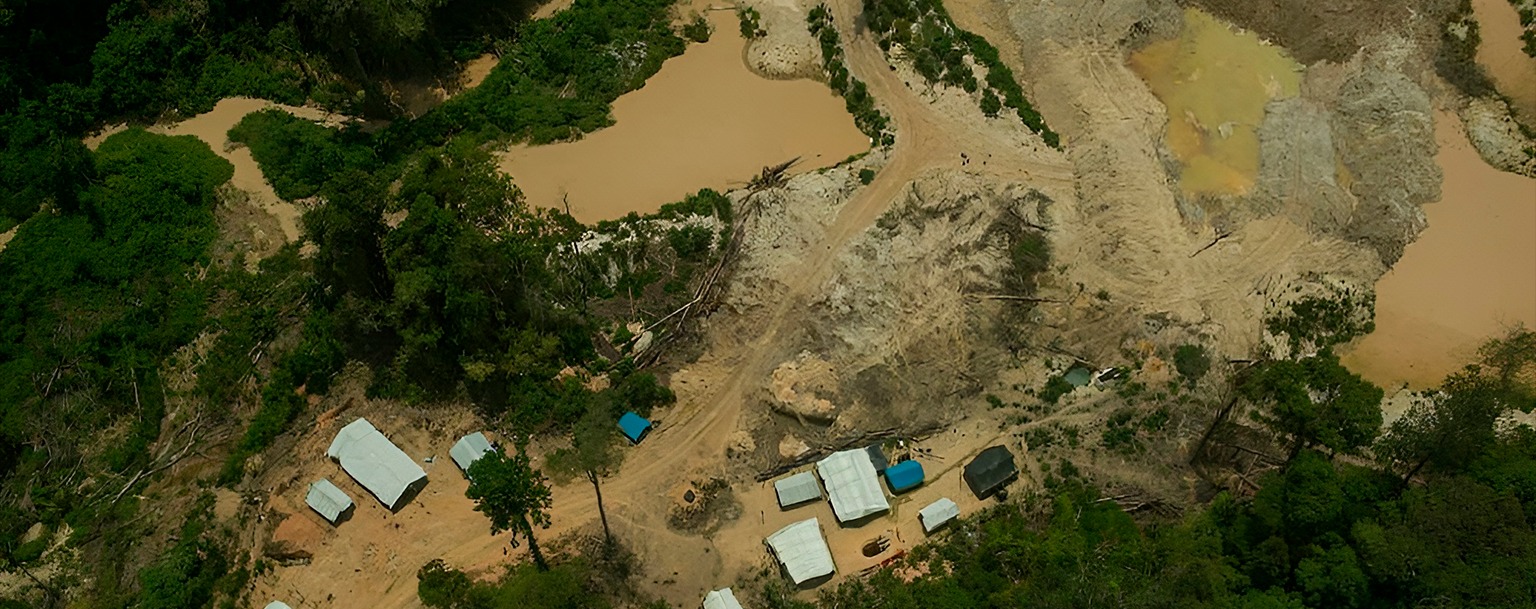Narco-mining: Understand how factions commit environmental crimes in mining areas in Brazil.
04 de February de 2025

By Fabyo Cruz – From Cenarium
BELÉM (PA) – Drug trafficking has been driving socio-environmental crimes in the Legal Amazon, with the illegal occupation of land, logging, and illegal mining. According to data from the Security Observatories Network (ROS), Pará recorded 19 cases of environmental crimes in the first half of 2024. This situation is directly linked to the expansion of criminal factions in the north of the country, such as the First Capital Command (PCC) from São Paulo and the Red Command (CV) from Rio de Janeiro.
Since 2023, the ROS has been monitoring conflicts and environmental crimes to understand and publicise the connection between public security and the environment. In the first half of last year, Pará recorded 27 cases and was the state with the highest number of socio-environmental conflicts and crimes among all states observed by the organisation (Amazonas, Bahia, Ceará, Maranhão, Pará, Pernambuco, Piauí, Rio de Janeiro, and São Paulo), recording 51 cases over twelve months.

Even with a 29% reduction in 2024 compared to the same period last year, the numbers remain high, as the damage is often irreversible. This is because socio-environmental crime has developed a new specialisation—“Narco-Mining”, says Lucas Moraes, a researcher from the network. Moraes explains that controlling drug trafficking routes allows criminal groups to also invest in the exploitation of natural resources and the imposition of fees.
The Role of Criminal Factions
“These factions from major urban centres establish investment and partnership relations with local and regional factions. They engage in illegal fishing, timber extraction, mineral exploitation, and land grabbing as strategies to strengthen drug trafficking in the Amazon. The overlap of illicit activities affects the daily lives of traditional communities, such as riverside dwellers, indigenous peoples, and quilombolas. Young people from these communities are recruited by faction members to collaborate with the local drug trade”, explains the researcher.
The presence of criminal groups in mining operations disrupts the daily lives of people in these territories due to the sense of insecurity, Moraes says. “Due to the presence of Narco-Mining, residents of riverside communities have their transport vehicles stolen, and indigenous peoples lose their lands,” observes Lucas Moraes. According to ROS, between 2017 and 2022, Pará recorded 474 cases of crimes against indigenous and quilombola communities.

“Environmental violence erases the history of these populations and keeps them in vulnerable conditions. Environmental crimes are also linked to drug trafficking through drug transportation in fish, such as the pirarucu, and shipments concealed within illegally harvested timber. Pará presents a complex scenario of violence in cities such as Altamira, Marabá, and Parauapebas, which serve as international drug trafficking routes, particularly for cocaine, destined for countries like Colombia, Peru, Bolivia, and Venezuela”, said the representative of the network.
Lucas Moraes concludes by stating that the geographical networks of drug trafficking impose a system of control and regulation over the main cocaine transportation routes, promoting interaction between products and consumers: “There is a complex network integrating capital and goods flows derived from drug trafficking. Increasingly, other illicit products follow the cocaine routes, such as contraband minerals and timber from the Amazon, due to low enforcement and the geography of the region, which facilitates the expansion of factions into these areas.”

